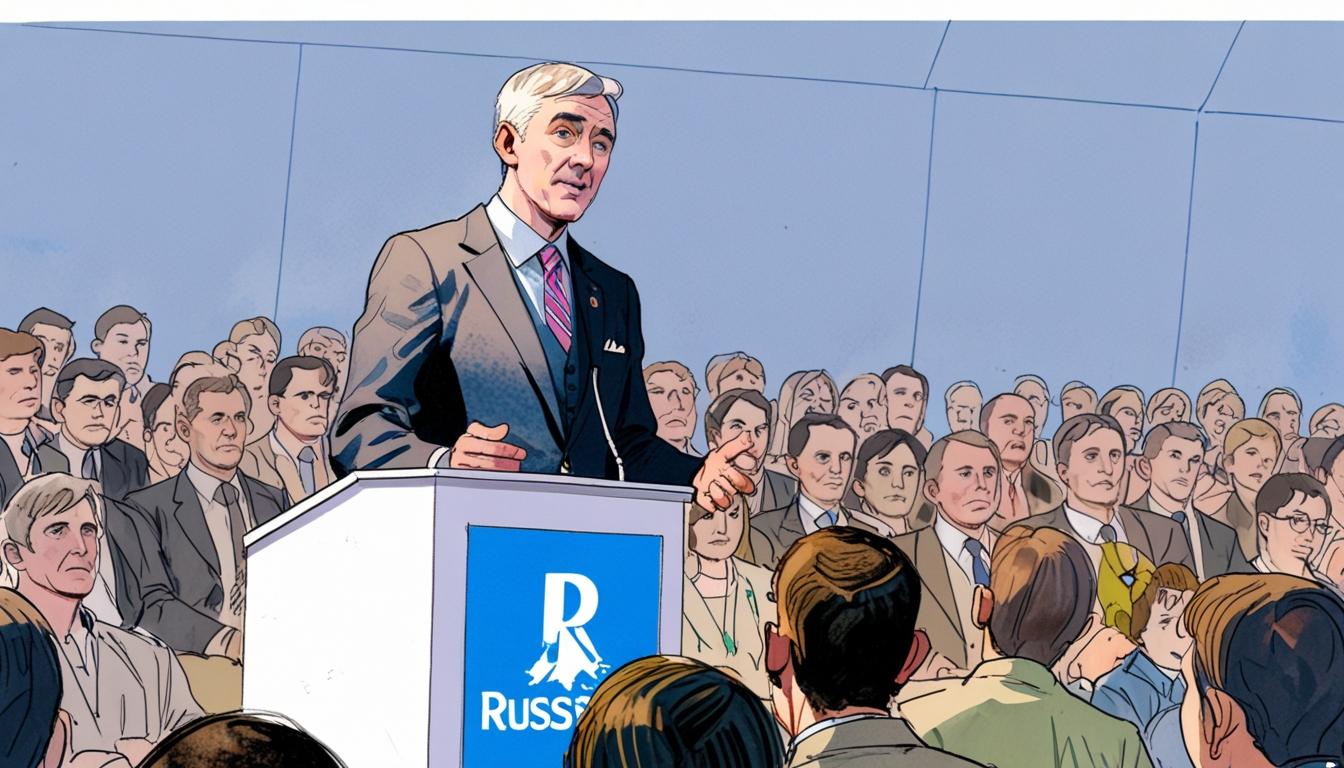Can Russell Findlay Revive the Scottish Tories?
In a recent press conference, Russell Findlay, the newly elected leader of the Scottish Conservative Party, laid bare his concerns about the corrosive grip of the SNP, now emboldened after a general election that saw them solidify their power at the expense of traditional values. However, it is the stagnation reflected in his party's polling that poses an even greater threat, one that undermines not just the Conservatives but the very fabric of Scottish political discourse. A recent Survation poll commissioned by True North indicates that the Scottish Conservatives are on course to lose as many as 18 seats in the next Holyrood election, a decimation that speaks volumes about a party increasingly out of touch with its base.
While the political mantra insists that "there's only one poll that matters," which is the election itself, the prevailing trends within those polls tell a troubling story. The Scottish Conservatives continue to flounder, failing to secure more than a 13% constituency vote share over the last eight months. The stark reality reveals a party flatlining, in desperate need of revitalization as a wave of disillusionment ebbs away their support.
Scott Edgar from Diffley Partnership described the bleak landscape: "Since the general election, polling shows support for the Scottish Conservatives has remained stagnant, with the party struggling to gain traction." With discontent brewing among traditional Tory voters, many are now turning to alternative voices that resonate with their frustrations—a clear signal that a radical rethinking is needed. The rise of more assertive opposition movements captures those voices, amplifying the urgency for Findlay to articulate a compelling alternative to the Labour-led government.
Adding to these challenges is the alarming lack of visibility around Findlay himself. A YouGov poll revealed a mere 10% of respondents view him favourably, while a staggering 60% are unaware of his leadership. This highlights a serious disconnect; a significant portion of the electorate may simply not recognize their party leader, reflecting a failure to effectively engage the public at a crucial juncture.
During the press conference, Findlay pledged to raise his visibility, which is essential for reviving a party in peril. He downplayed his non-political background, stressing that it should not hinder his connection with the public. “It does take time, but in the forthcoming year with the election, my profile will inevitably rise," he stated. However, mere aspirations will not suffice. The electorate demands actionable reforms and a resonant vision, not just platitudes cloaked in "common sense" rhetoric.
To combat the narrative of decline, Findlay must offer a compelling vision that speaks directly to the frustrations of an increasingly disenchanted electorate. Historical context reveals the stakes; under former leader Ruth Davidson, the party had enjoyed a resurgence, only to see support collapse in the wake of a catastrophic election result. With expectations of a potential wipeout looming, as indicated by a separate YouGov poll showing Conservative support at a mere 12%, the party finds itself at a crossroads.
Ultimately, Russell Findlay's mission to revive the Scottish Conservatives hinges not only on amplifying his personal brand but also on galvanizing a party grappling with an identity crisis. As Labour's policies continue to dominate the discourse, the next year is critical for Findlay to demonstrate that a return to core principles—embracing genuine conservative values—can rekindle the hopes of an electorate yearning for authenticity, passion, and change.
Source: Noah Wire Services
